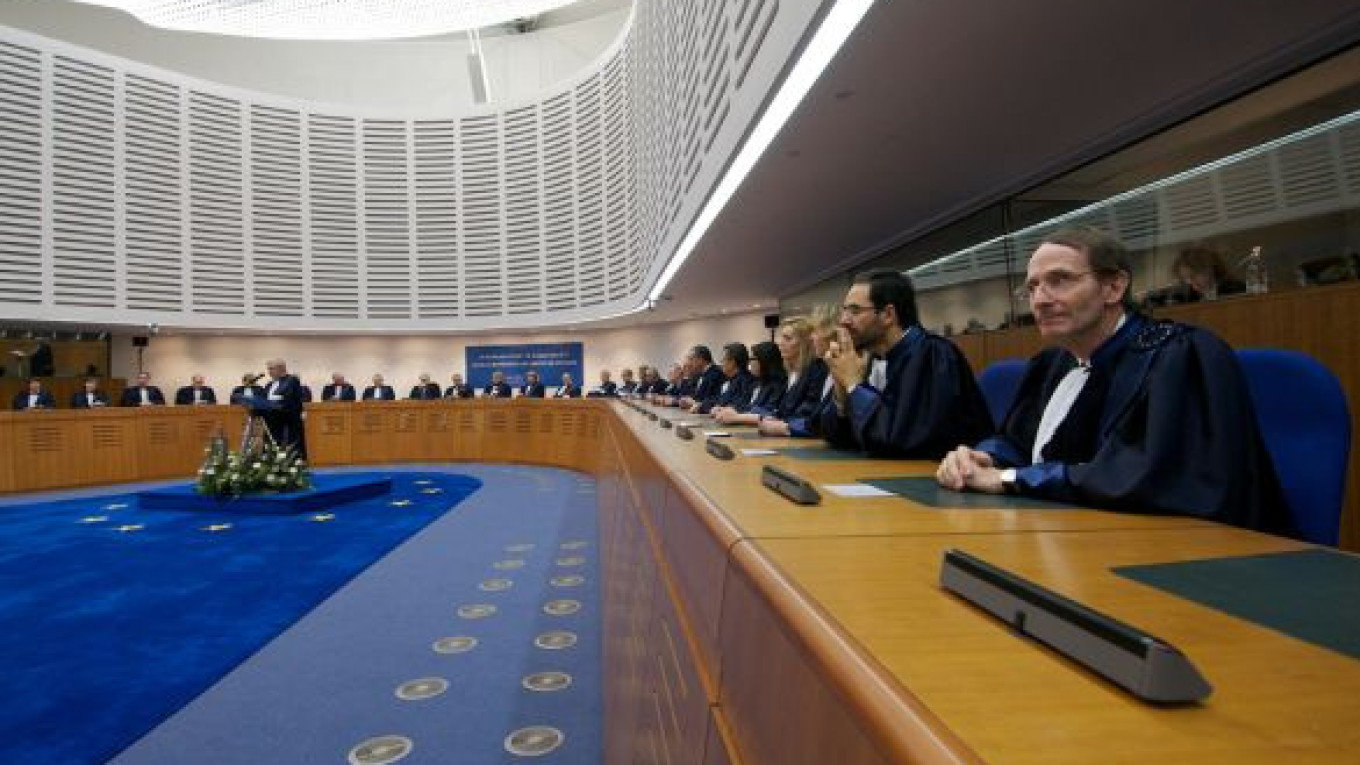A recent rules change at the European Court of Human Rights has advocates worried that efforts to speed up the court's work will prevent some cases from being heard.
The Strasbourg-based court has struggled with a vast backlog over the past decade, and a large number of human rights cases have come from Russia.
But now the court is moving to tighten the process by excluding submissions filed incorrectly, human rights lawyer Anna Stavitskaya told Kommersant.
All applications must now include a one- or two-page summary of the case, the applicant's full personal information and information proving that the suit is admissible.
Any cases filed without this information will be automatically rejected, meaning applicants risk running out of time to refile under the court's six-month deadline.
The changes were first introduced in 2011 when the court set up a filter system to deal with cases from countries with the largest caseloads, such as Turkey and Russia. But now the court is moving to fully implement the rules, Stavitskaya said.
"If earlier these formalities were advisory, now they have an obligatory character," she said, adding that the only exceptions will be cases concerning torture and the right to life.
Rights lawyer Mark Feygin told The Moscow Times that the changes marked "a step back for the European guarantee of Russian constitutional norms."
He predicted that the changes would reduce the flow of cases from Russia and make it harder for Russian civil society to exert pressure on national courts to reform corrupt processes.
Ordinary citizens lacking a legal background would be most affected, said human rights campaigner Pavel Chikov.
"I think that hundreds of applications from Russia could fail each year," he told RIA-Novosti, although he also said there is no need to overdramatize the situation.
Court spokeswoman Tracey Turner-Tretz said the new restrictions had already proved beneficial because they cut waiting times that can stretch for years.
"The new working methods have proved highly effective, with a substantial reduction in the waiting time for applicants with inadmissible applications," she said.
Since Russia came under the court's jurisdiction in 1998, judges in Strasbourg have handed down more than 1,200 judgments against the Russian government.
The rulings have found fault with Russia for a variety of reasons. "Procedural flaws" were cited in the case of Mikhail Khodorkovsky. And the court condemned violations of people's right to life in the botched hostage-rescue operations at the Dubrovka theater and Beslan school, which ended in bloodshed.
On Wednesday, anti-corruption campaigner Alexei Navalny announced on Twitter that the court was examining a complaint he filed over a 15-day jail sentence he received after a recent protest march.
Russian citizens had filed just over a quarter (26.5%) of the 151,600 complaints pending before the court at the end of 2011
Anna Sevortian, director of the Moscow office of Human Rights Watch, said there is no agreement among lawyers about the impact of the measures.
"The number of cases coming from Russia is extremely high, and the court is suffocating," she said
"It is really arguable at this stage whether this will be detrimental to access to the court."
A Message from The Moscow Times:
Dear readers,
We are facing unprecedented challenges. Russia's Prosecutor General's Office has designated The Moscow Times as an "undesirable" organization, criminalizing our work and putting our staff at risk of prosecution. This follows our earlier unjust labeling as a "foreign agent."
These actions are direct attempts to silence independent journalism in Russia. The authorities claim our work "discredits the decisions of the Russian leadership." We see things differently: we strive to provide accurate, unbiased reporting on Russia.
We, the journalists of The Moscow Times, refuse to be silenced. But to continue our work, we need your help.
Your support, no matter how small, makes a world of difference. If you can, please support us monthly starting from just $2. It's quick to set up, and every contribution makes a significant impact.
By supporting The Moscow Times, you're defending open, independent journalism in the face of repression. Thank you for standing with us.
Remind me later.


